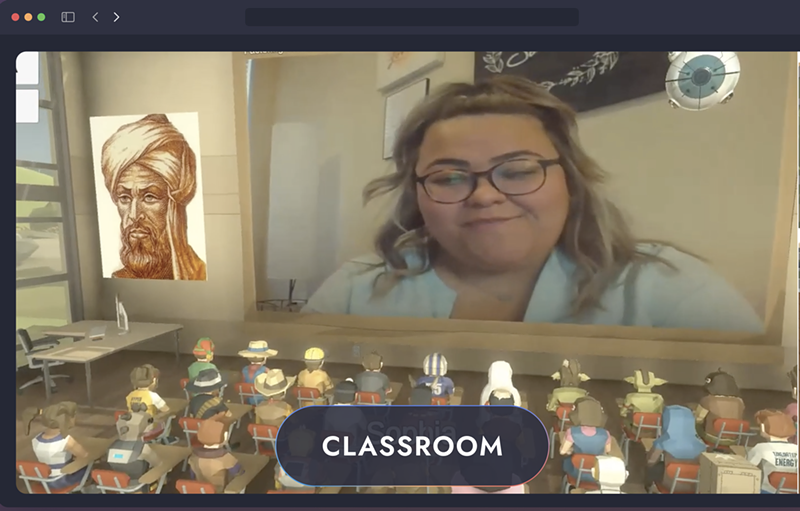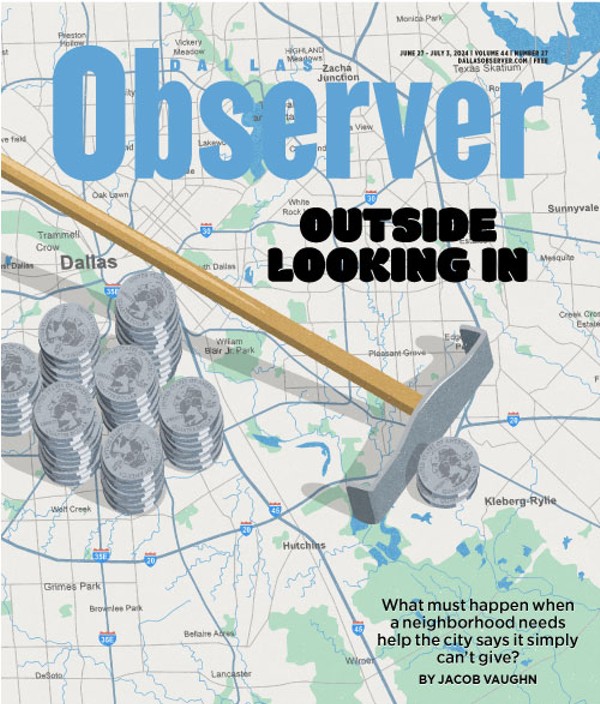Some of the hype behind the metaverse has died down in recent years, but Taylor Shead and her local tech company STEMuli are pushing forward with their own educational virtual world. The company's platform is now being used in Dallas and Garland independent school districts.
What STEMuli has done is turn learning into a video game. The company calls this video game world an educational metaverse. In this virtual world, students can create their own avatars and sit in a simulated classroom with their teacher and friends. After classroom instruction, students are let out into the educational metaverse to perform individualized tasks that help them learn.
Now, the platform is getting a boost through artificial intelligence. With AI, the platform catches on to what areas students may need help in and offers them educational tasks accordingly. It can also show the students how what they’re learning pertains to their career goals.
“If you can imagine a video game learning more about you, understanding what you know and what you don’t know and continuing to provide experiences that are personalized to you as an individual, that’s really how we’re leveraging AI and we believe is a great use case for it,” Shead said.
The company recently won an international award for its use of AI, but STEMuli’s wins have come with some challenges. For example, the STEMuli team woke up one Monday morning last year to find $0 in its bank account.“I ended up coming home as the global winner.” – Taylor Shead, STEMuli
tweet this
Silicon Valley Bank, which funded a lot of tech startups, including STEMuli, failed in March 2023. Suddenly, all these companies were trying to get their money out of the bank. Shead said she thought the company’s wire transfers for the money went through in time, but they hadn't.
“It was like hundreds of thousands of dollars sitting in that account,” Shead said. “So, overall, investors got really frightened.” She said a large number of startups closed last year as a result of the bank failure and investor fears.
STEMuli was able to secure more funding from some pretty big names, however, including $150,000 from Google and about $1 million from the Bill & Melinda Gates Foundation. “That enabled us to keep going and accelerate our AI build,” Shead said. The company also closed a $7.5-million deal with one of the largest online schools in the U.S., Stride Learning.
“So, we went from a time where it was like impossible to raise money and we needed more funds, we had to dramatically reduce our staff," she said. "But we kept going and we were one of the blessed ones that was able to see our way through it.”
In its earlier iterations, STEMuli’s educational metaverse was similar to video games like Minecraft and Roblox, using a minimalist, more cartoonish art style called low poly. Since then, after a $5-million investment in the platform, the look is more realistic, something closer to Grand Theft Auto or Fortnite.
Earlier this year, Shead said the company met with an AI investor who told her the company had one of the best use cases for AI that he had seen and that he’d like to nominate them to participate in the United Nations AI For Good Summit. As a former athlete, Shead is always up for a challenge. “We were game,” Shead said.
To represent North America in the summit, Shead pitched STEMuli against four other companies, all run by men. She got five minutes to pitch her idea and was ultimately advanced to the international stage. The team was flown out to Geneva, Switzerland, to compete against companies from around the world. “It felt like the Olympics for entrepreneurs,” Shead said.
In Switzerland, Shead pitched her company against three others, again all run by men. “I ended up coming home as the global winner,” she noted. “It’s like a once-in-a-lifetime type of achievement.”
Shead's excited to keep moving the ball forward with her company. On top of the Stride Learning deal, STEMuli is expanding to work with schools in Georgia this fall.
“We’re bringing the best technical resources together, we’re going to continue to build on this great product," Shead said. "We feel like it’s still in its infancy. Then, we’re going to tell the world our story, knowing that there’s so many people around the world that need access to something like this because education is still not very accessible to the masses.”












